In the bush at Samford, 23km northwest of Brisbane, lies one of QUT's little-known gems, the 51-hectare living laboratory known as the Samford Ecological Research Facility (SERF).
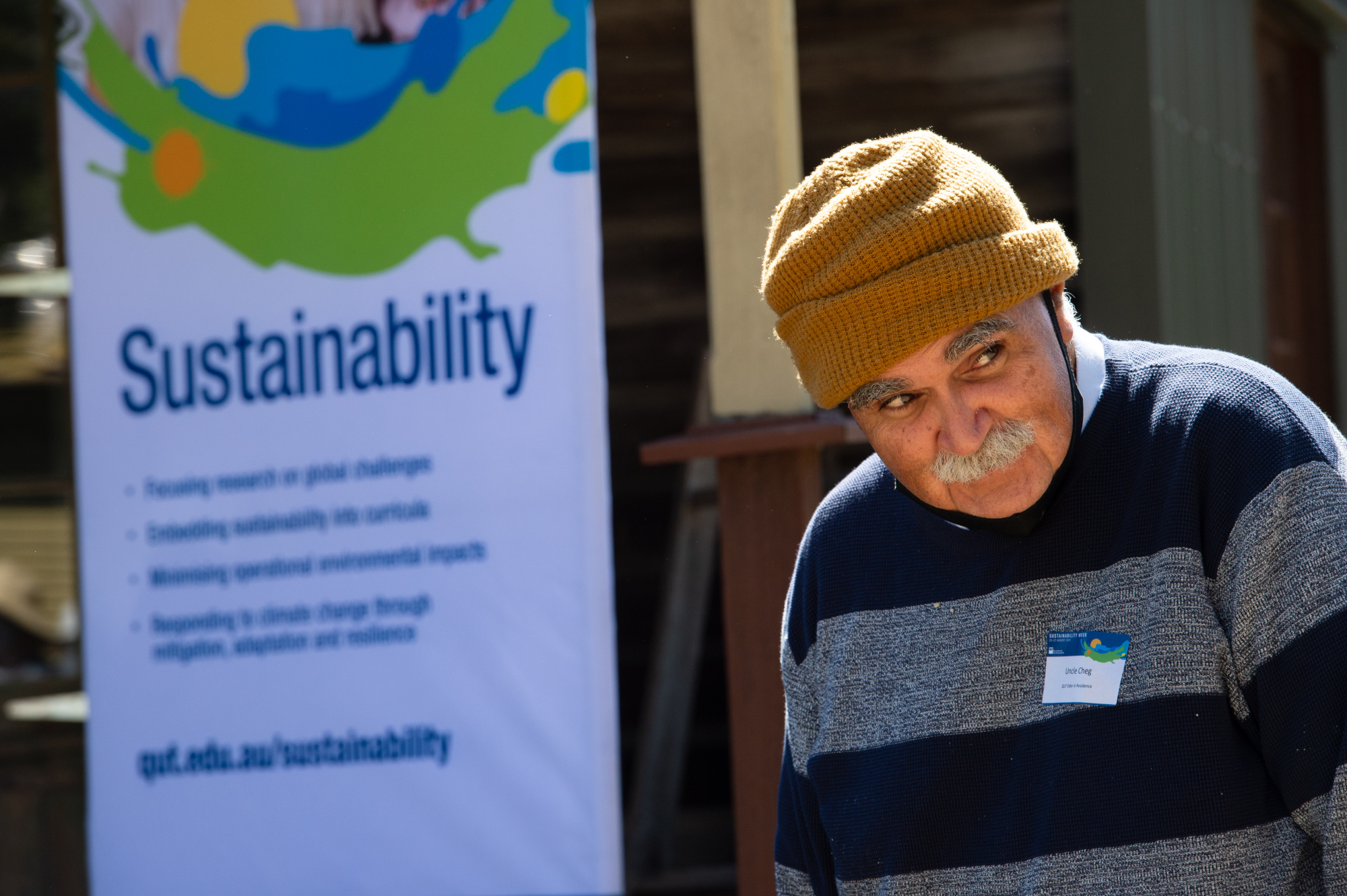
Bequeathed to the university in 2009 by the estate of renowned Queensland entomologist Dr Elizabeth (Pat) Marks, SERF is used today as a multidisciplinary teaching and learning facility, hosting projects from the sciences, creative industries and the built environment.
As part of QUT's Sustainability Week a group of staff and students toured the site, learning about some of the facility's key programs and how SERF might be used to help QUT learn from traditional connections to land.
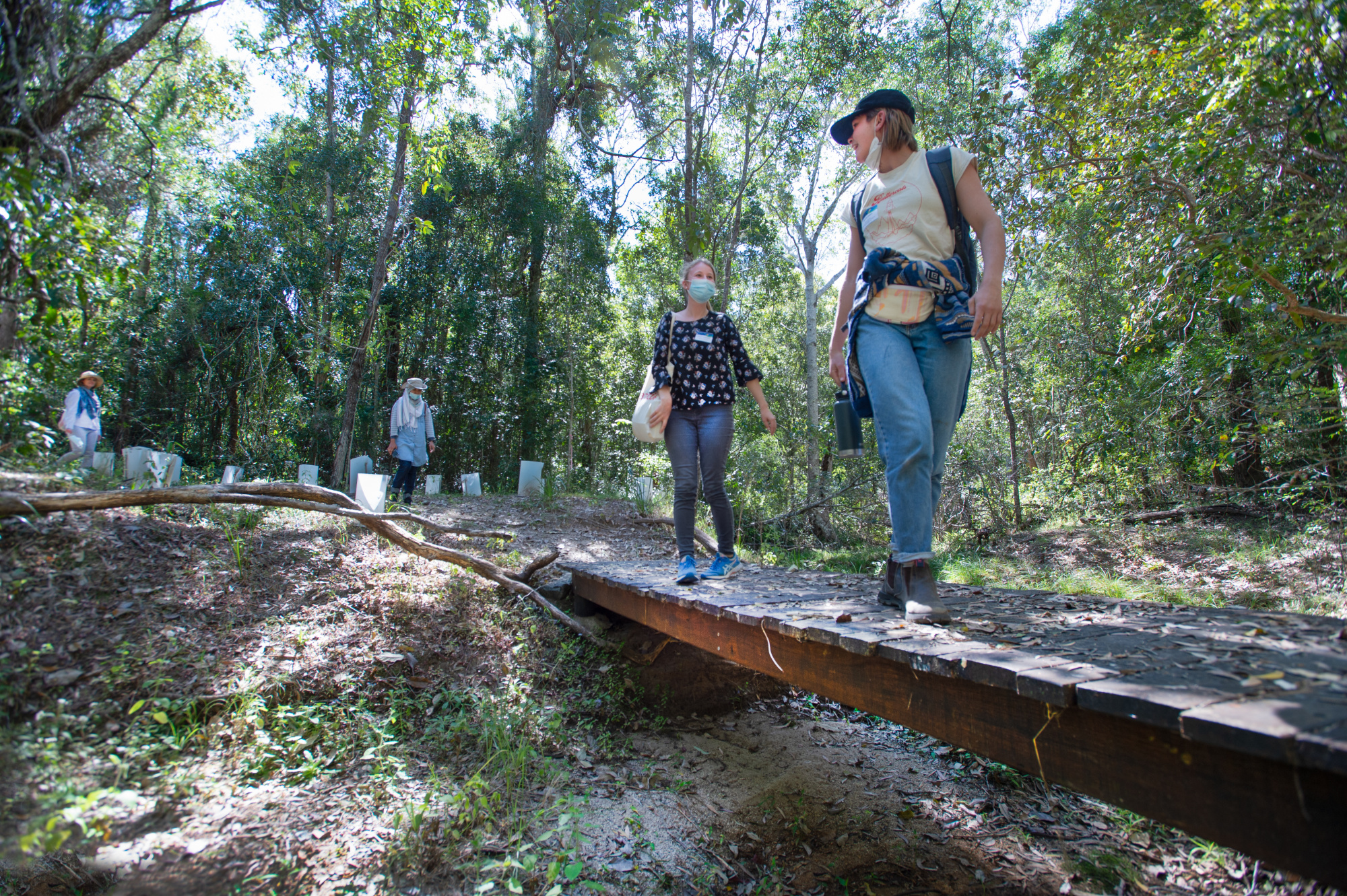
A lively bushwalk through a small section of the property showcased some of the research projects currently underway at SERF, as well as the property's mosaic of cleared pasture and remnant native vegetation, including one of the last intact sections of notophyll vine forest along Samford Creek.
First stop was in a beautiful patch of dry woodland forest, where one of four acoustic sensors records animal noises for the Australian Acoustic Observatory.
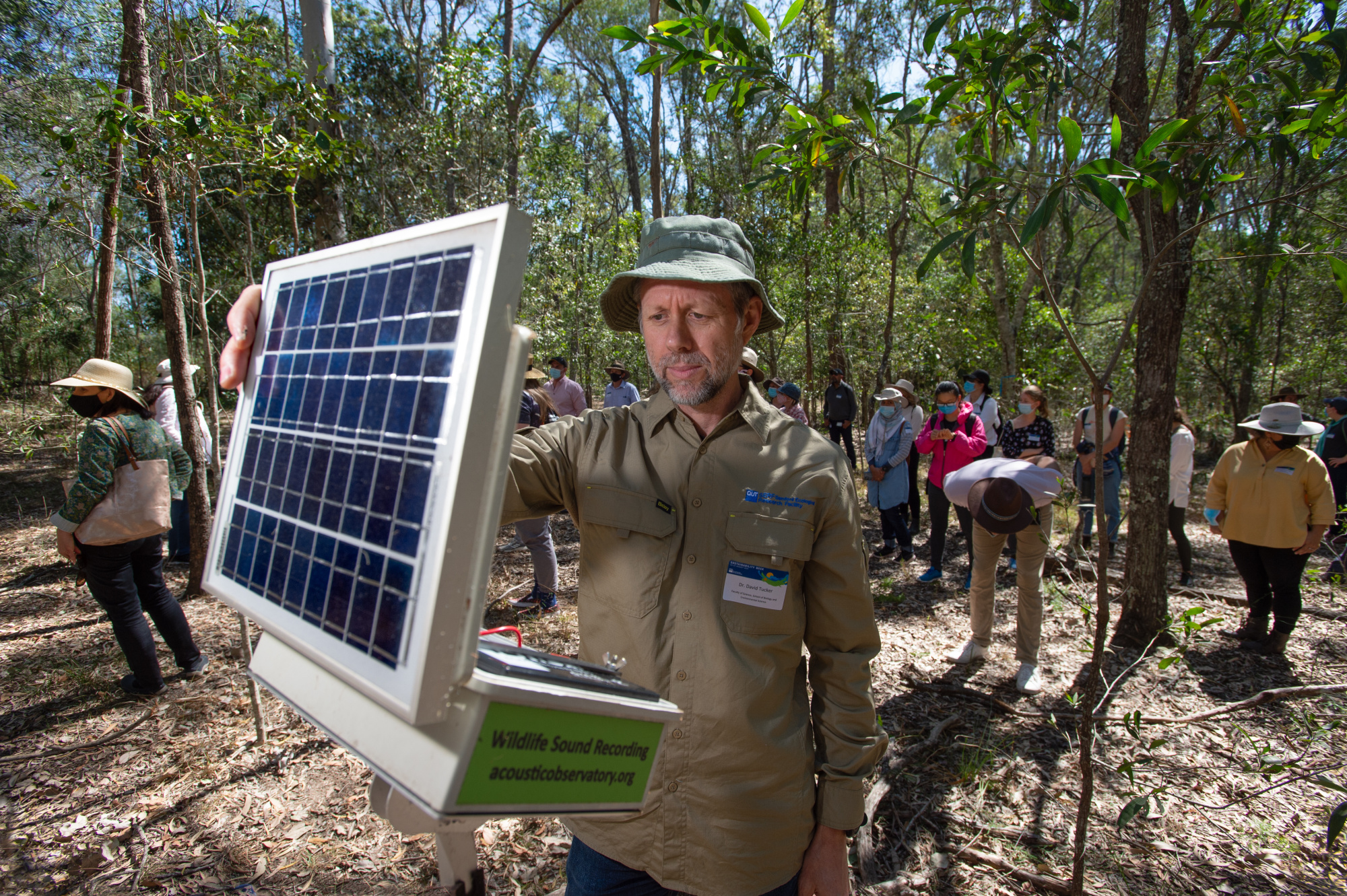
Landscape ecologist with the Ecoacoustics Research Group Dr David Tucker said the sensor was part of a nationwide network of almost 400 sensors that recorded audible noises, especially species such as birds and frogs, 24 hours a day, seven days a week.
"Potentially we can use the data to track long-term changes in climate or to monitor invasive species," Dr Tucker said.
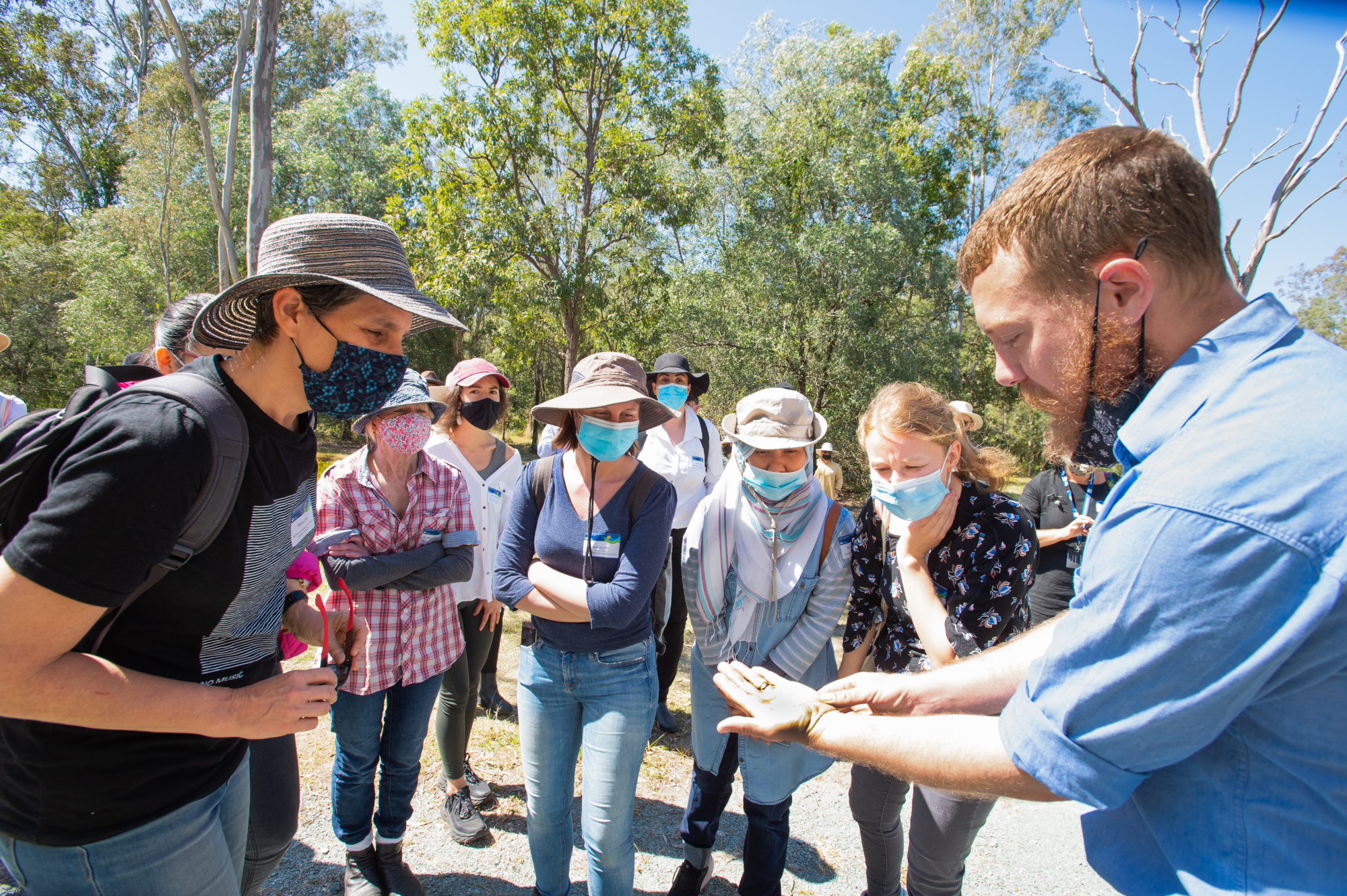
School of Biology and Environmental Science Research Assistant Darcy Patrick showed SERF's three screenhouses that have been refurbished to grow grasses for a project researching pasture dieback.
Visitors saw tiny mealybugs, which are suspected of contributing to the dieback, with preliminary research results pointing to them as a culprit. The tour wound on through the tall eucalypts doting the field around the screenhouses. "I love coming out here: it's the best office in the world," Mr Patrick said.
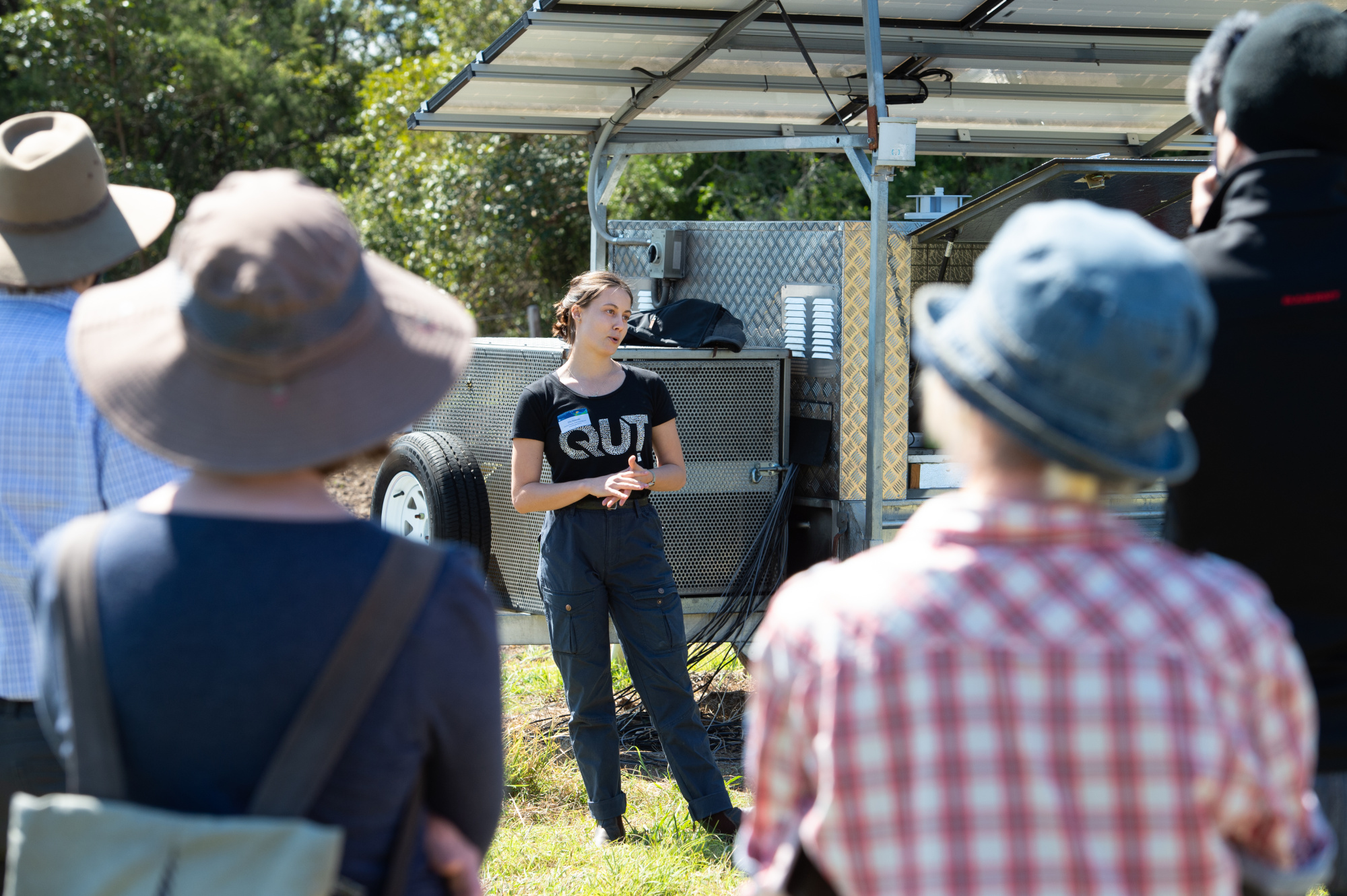
Honours student in the School of Biology and Environmental Science Ella Dewilde showed a ploughed field dotted with sensors that could be remotely activated to measure gases such as nitrous oxide, carbon dioxide and methane for a project studying soil carbon.
Ms Dewilde explained the work was being done by the resilient landscapes team, which researches and encourages agricultural practices that work with nature rather than against it.
"The ultimate purpose of our work is to contribute to the mitigation of climate change and study agricultural practices that increase productivity without forsaking natural resources."
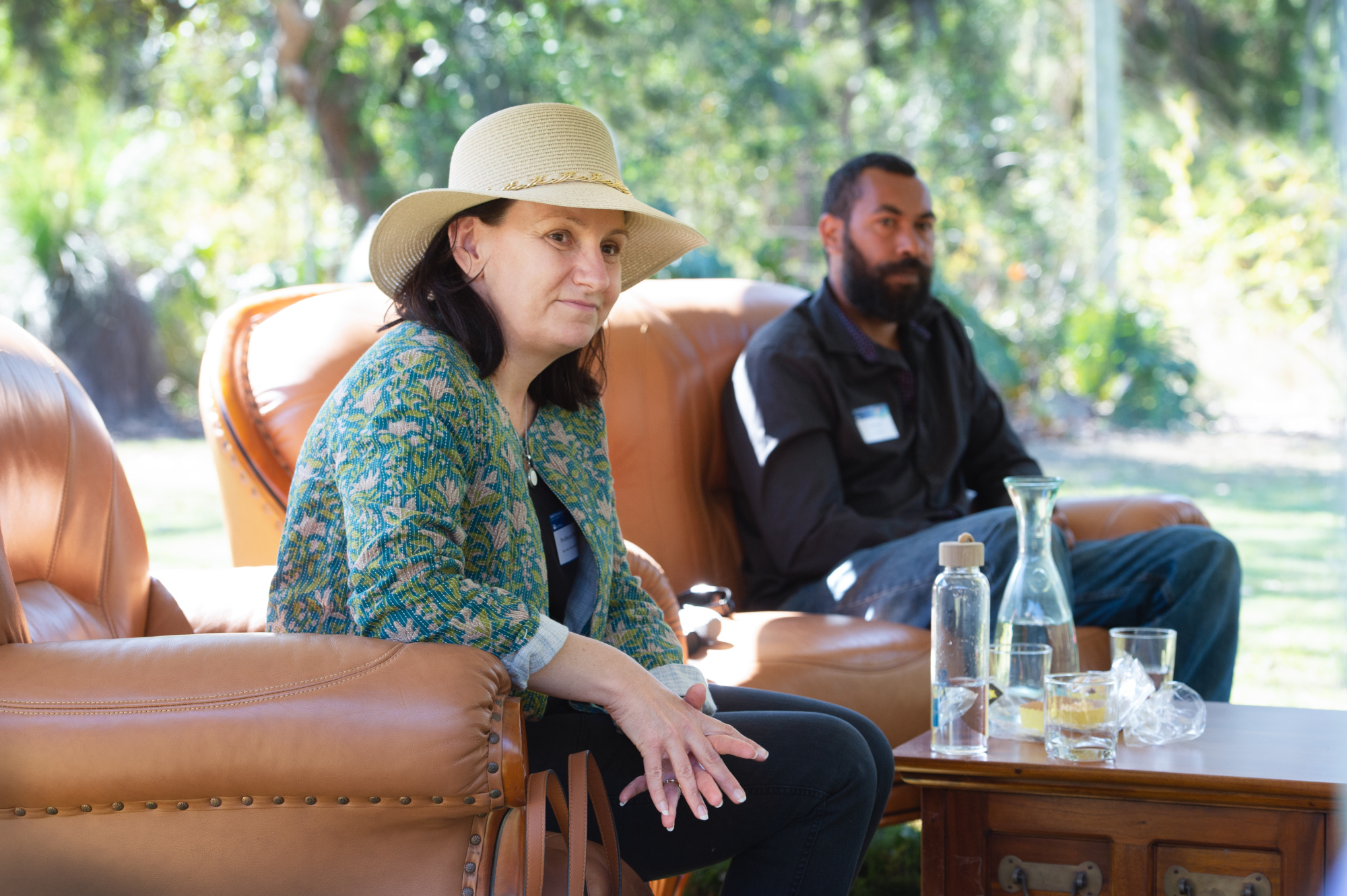
QUT's Pro Vice-Chancellor (Sustainability Strategy), Professor Kerrie Wilson, chaired a panel on the importance of connection to country, custodianship of the land and working together to ensure our environment is protected for future generations.
Professor Wilson said as well as providing an excellent opportunity to connect to land, SERF offered a broad spectrum of opportunities for QUT in teaching and research.
"We're seeing some great science here today, but we're also using the facility as a base for creative art, engineering and built environment, drone work and AI research," Professor Wilson said.
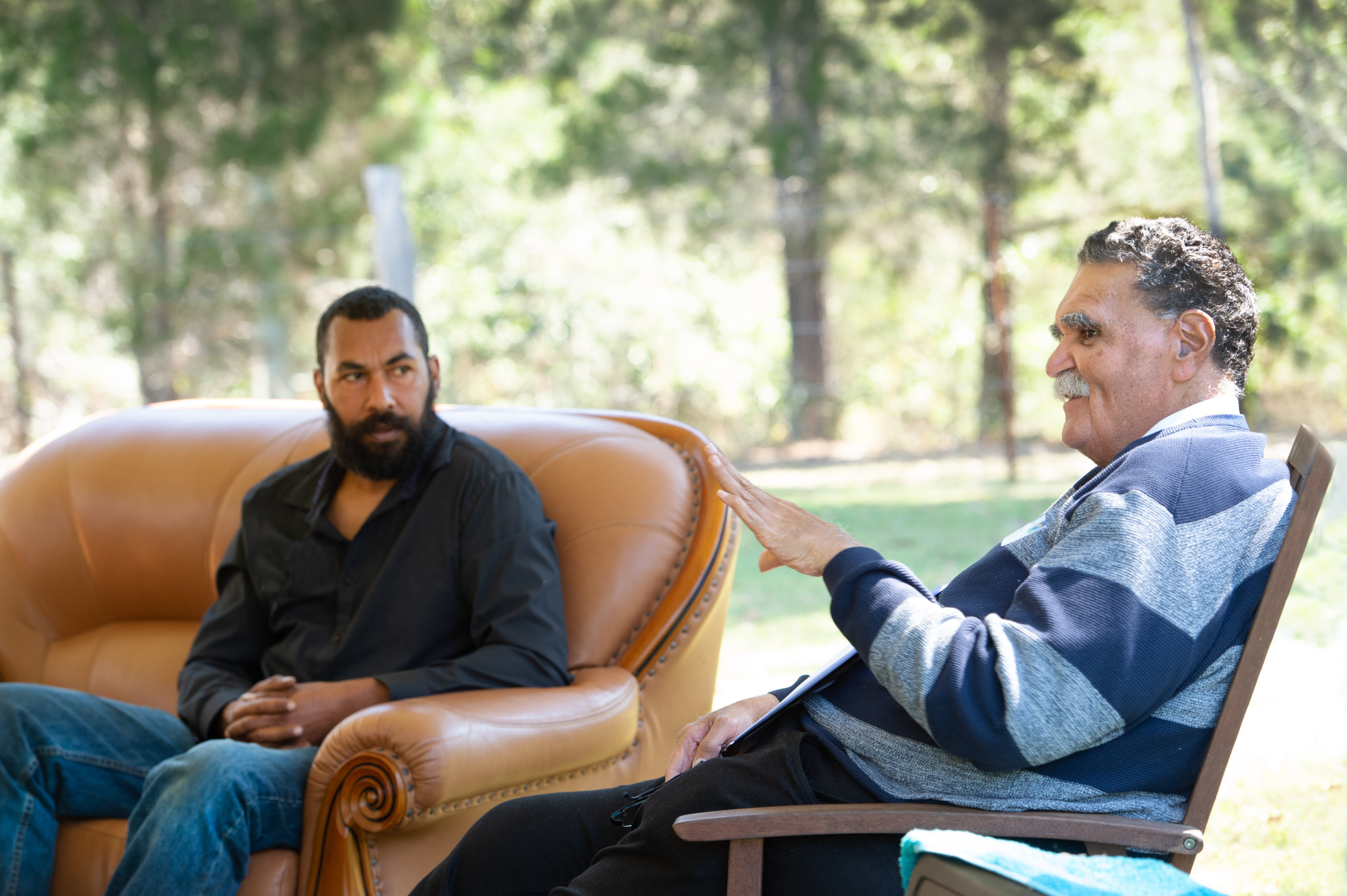
Panel speaker, Bundjalung, Thungutti and Mualgal man and Firesticks Regional Coordinator for South East Queensland, Leeton Lee, said using cultural ecological management practices to regenerate some of the former pastures at SERF could help restore the land and educate the community.
Mr Lee said he's found the best way to teach people about cultural burning is to demonstrate it.
"We have people coming up to us in tears, saying, 'We didn't know we were doing it all wrong.' But that's OK. We only know what we know, and it's like putting on a different set of glasses: we start seeing things differently."
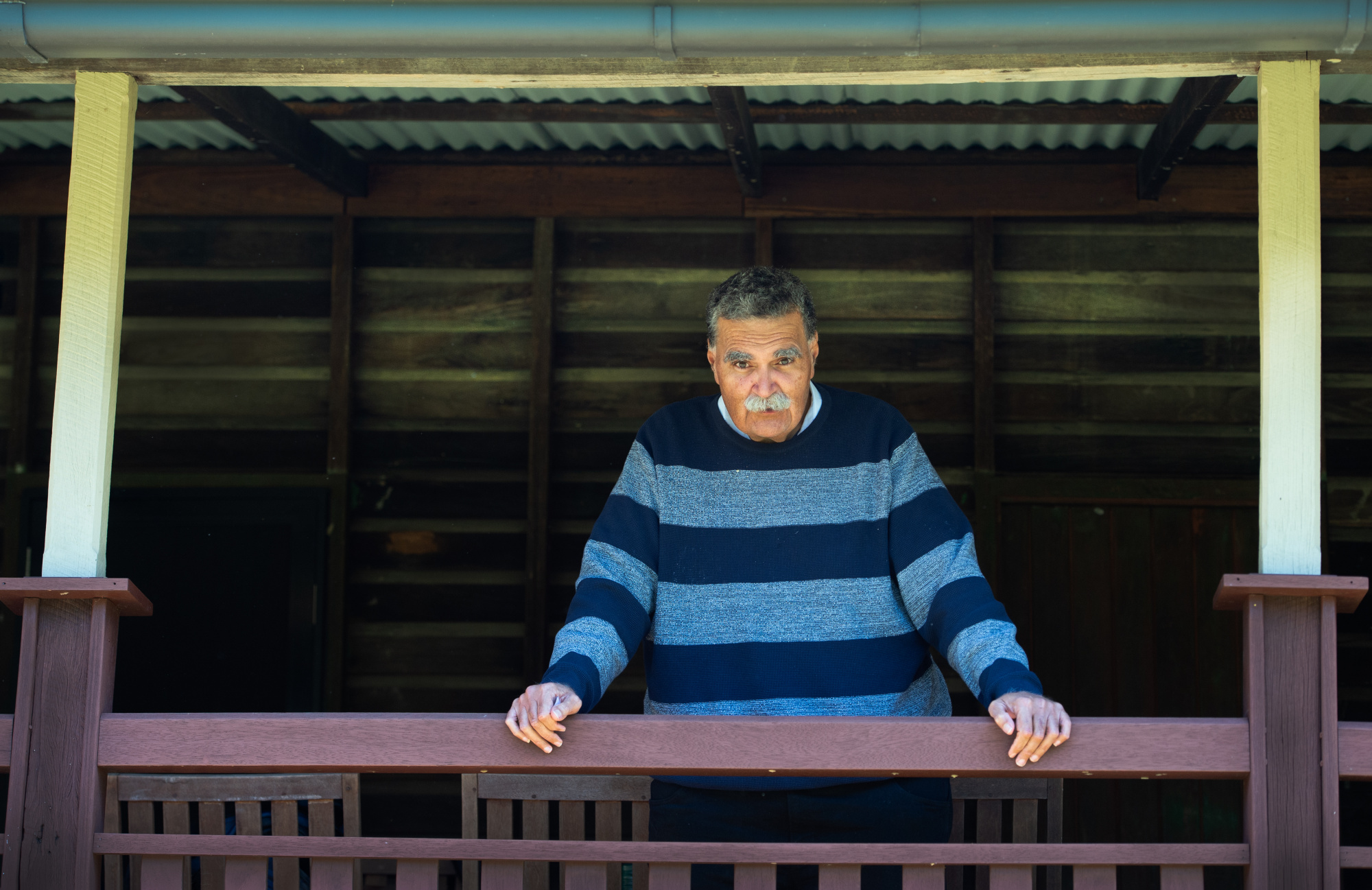
QUT Elder-in-Residence and Yugara and Goenpul man, Uncle Cheg, said he saw great potential at SERF to find new ways to help the wider community connect through land.
"This could be so much more because it's a place that's connected to our country and our land. We have an active role in understanding how Mother Earth is connected to our mob," Uncle Cheg said.
"Connecting to land is a tool we use for social change because it's understanding our social values."






